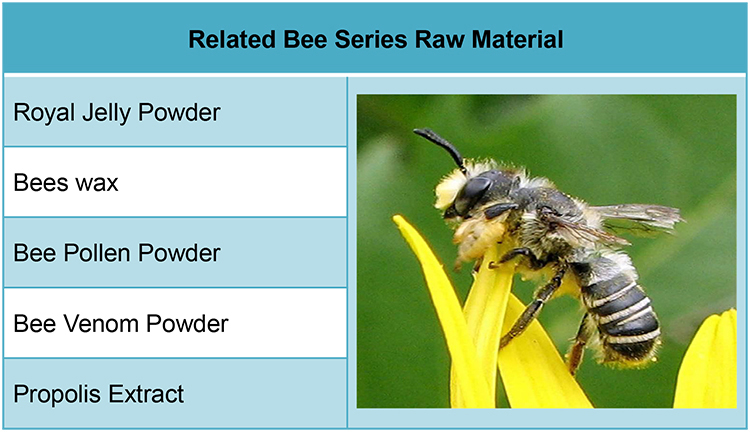Propolis powder is a natural substance produced by honeybees. It is derived from tree resins, sap, and other botanical sources, which the bees collect and mix with their enzymes and beeswax. It has been used for centuries for its potential health benefits, but its effectiveness, side effects, and special attention considerations can vary depending on how it is used. Here’s some information about propolis powder:
Effectiveness of Propolis Powder:
Antioxidant Properties: Propolis is known for its antioxidant properties, which can help protect cells from damage caused by free radicals. This may contribute to its potential health benefits.
Antibacterial and Antiviral: Some research suggests that propolis may have antibacterial and antiviral properties, making it potentially useful for supporting the immune system and fighting infections.
Anti-Inflammatory: Propolis may help reduce inflammation and soothe various skin conditions, such as burns or wounds.

Oral Health: It is often used in oral care products like toothpaste and mouthwash due to its potential ability to fight oral bacteria and reduce the risk of dental issues.
Wound Healing: Propolis may help with wound healing, both internally and externally. It may be used topically on skin wounds or taken internally to support the healing process.
Side Effects of Propolis Powder:
Allergies: Some individuals may be allergic to propolis, experiencing skin rashes, itching, swelling, or even anaphylaxis. If you are allergic to bee products, you should avoid propolis.
Oral Irritation: When used in oral care products, propolis can cause irritation or an allergic reaction in the mouth for some people.
Digestive Upset: In some cases, taking propolis internally may lead to gastrointestinal upset or diarrhea.
Special Attention of Propolis Powder:
Dosage: The appropriate dosage of propolis can vary depending on the intended use and the product. It’s essential to follow the manufacturer’s recommendations or consult with a healthcare professional for guidance.
Allergies: If you have a history of bee or pollen allergies, you should exercise caution when using propolis and consider performing an allergy test before using it.
Quality Control: Ensure that you purchase high-quality propolis products from reputable sources. Quality can vary, and substandard products may not deliver the desired effects.

Interaction with Medications: If you are taking medications, especially blood thinners or medications that suppress the immune system, consult with a healthcare provider before using propolis, as it may interact with certain drugs.
Pregnancy and Breastfeeding: The safety of propolis during pregnancy and breastfeeding is not well-established. It’s generally recommended to avoid propolis products during these periods unless specifically advised by a healthcare professional.
Propolis can be a valuable natural remedy, but it’s essential to use it with care and be aware of potential allergic reactions and interactions with other substances. If you have specific health concerns or conditions, consult with a healthcare provider before incorporating propolis into your regimen.
